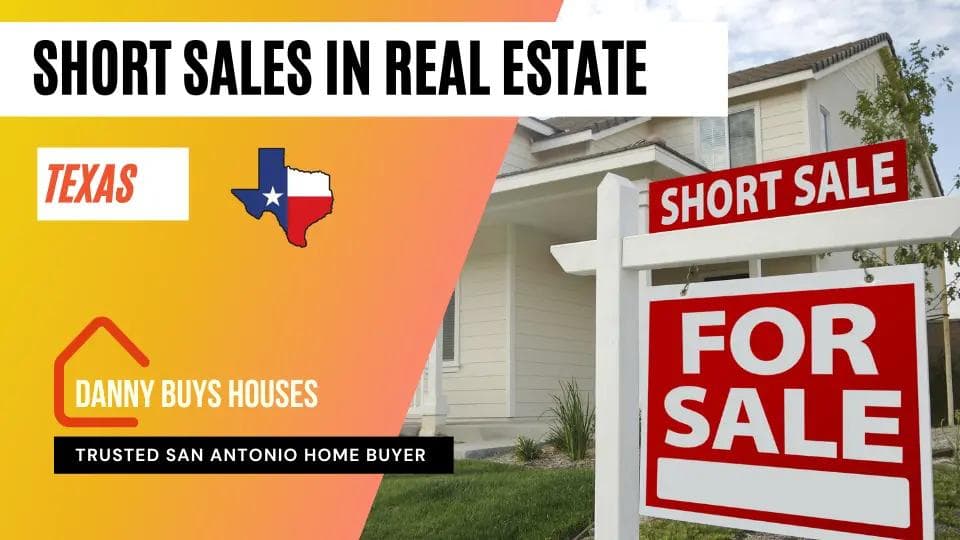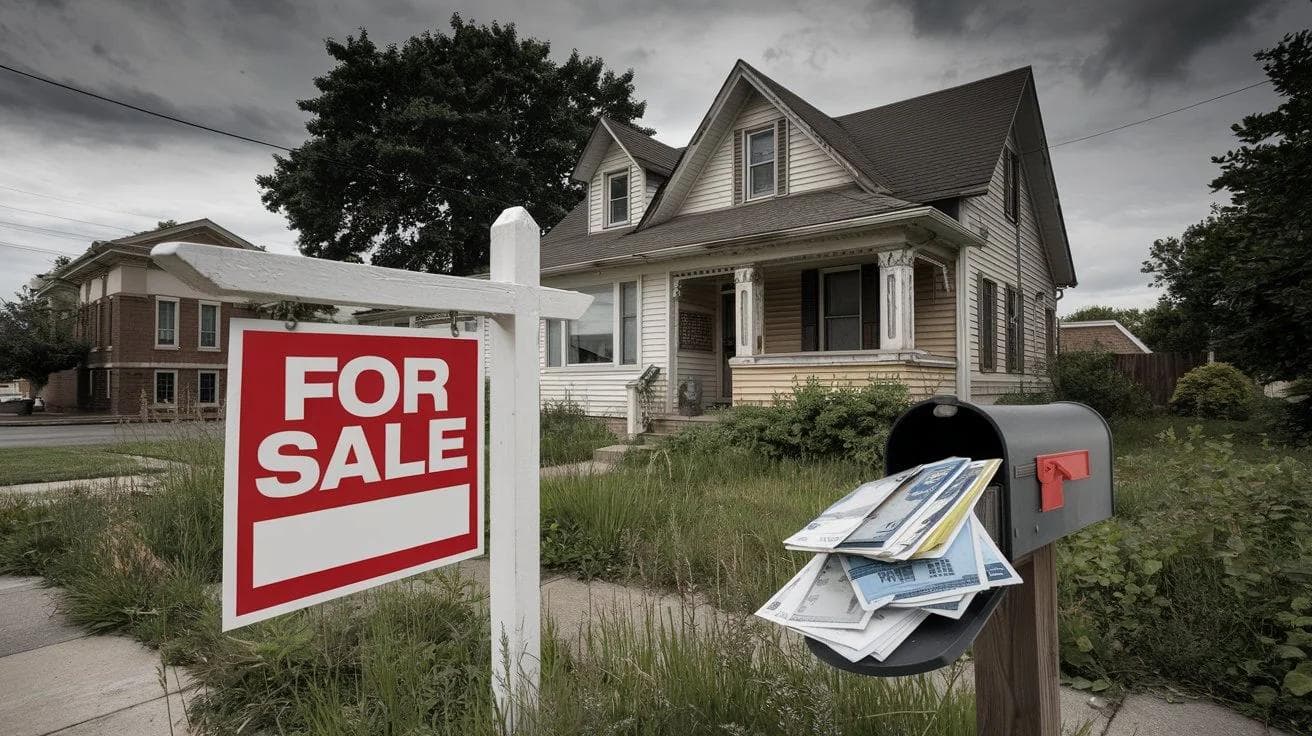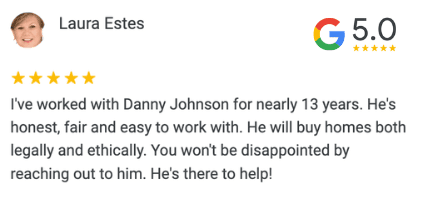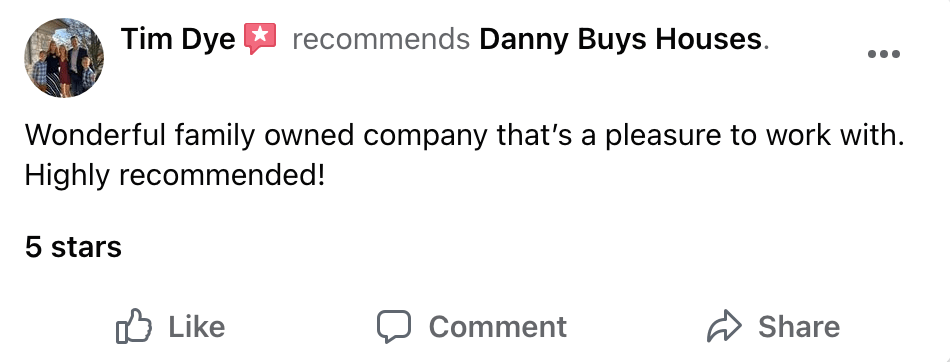
Short Sales in Real Estate Explained: How to Sell For Less Than You Owe!
By Danny Johnson | Updated 9/27/2024, 1:57:46 PM
Discover how a short sale can help homeowners facing financial hardship sell their home for less than they owe on the mortgage, avoiding foreclosure.
- Key Takeaways
- What is the purpose of a short sale of a home?
- Definition and Basic Concept
- Circumstances Leading to a Short Sale
- Key Players Involved in a Short Sale
- Which is the most likely consequence of a short sale?
- The Short Sale Process: From Listing to Closing
- Should You Attempt a Short Sale to Sell Your House?
🗂 Table of Contents
We received a call from someone wanting to sell their house. I remember it clearly because there was so much emotion. She'd lost her job and had not owned her house long. "I can't keep up with my mortgage and I am afraid I won't be able to sell it because I owe so much," she cried.
She was terrified at the though of foreclosure and what it would do to her credit.
That's when I told her about short sales in real estate.
Unfortunately, her story is common, especially in hard economic times.
A short sale happens when a homeowner sells their home for less than the mortgage debt. It's a way out for those in financial trouble that cannot find a buyer because they owe too much.
Short sales are a way to avoid foreclosure.
But, it's not easy. Lenders must agree, and there can be leftover debt to deal with after the transaction.

A short sale can hurt your credit score, but less than a foreclosure hurts your credit score. It might seem like a loss, but it can benefit buyers, sellers, and lenders too. Skipping the foreclosure process and completing the home sale makes everything faster and less expensive for everyone involved.
Key Takeaways
- Short sales allow homeowners to sell properties for less than what is owed on the mortgage
- They're typically initiated during financial distress or declining property values
- Lender approval is required, and the process can take up to a year
- Short sales typically impact credit scores less than foreclosures
- Homeowners can stay in their homes during the short sale process
- Professional guidance is crucial when considering a short sale
What is the purpose of a short sale of a home?
A short sale happens when a homeowner sells their home for less than what they owe on the mortgage lien. This helps them avoid foreclosure and its credit destroying effects.
Definition and Basic Concept
In a short sale, the lender agrees to accept less than the full mortgage amount. This is helpful when a homeowner can't afford their mortgage payments anymore. Short sales were more common during the 2008 housing crisis and rise when home values drop.
This is because as home prices drop, so does the amount of equity homeowners have. If they want to sell but owe $200,000 and the value of the home is now $180,000 they have limited options.
They can either accept a lower sale price and come up with the difference out of pocket or attempt a short sale.

Circumstances Leading to a Short Sale
Several factors can lead to a short sale:
- Financial hardship due to job loss or medical expenses
- Declining property values
- Inability to refinance the mortgage
- Need to relocate quickly
Key Players Involved in a Short Sale
A short sale involves several parties:
- Homeowner: Starts the process due to financial troubles
- Lender: Approves the sale
- Real estate agent: Manages the sale and talks to the lender
- Potential buyers: May get a good deal on a home
Short sales definitely fall outside the realm of a traditional sale. Buyers and sellers must be patient because the process takes from six to twelve months.
Sellers can recover faster and might qualify for a new mortgage in 2 to 7 years. Buyers can find deals, but the process is complex and slow.
Which is the most likely consequence of a short sale?
A short sale can affect a homeowner's finances in many ways. The most immediate effect is on credit scores. While better than foreclosure, a short sale can still lower your credit score a lot.
You might wonder if you can get money from the sale of your house at foreclosure auction. This typically does not happen because buyers have to buy the house as is and typically will pay less than market value.

In some places, lenders might ask for more money after the sale. This is called a deficiency judgment. It means you could still owe money even after selling your home. Also, the IRS might see the debt forgiveness as income, leading to a tax bill.
- Credit score typically drops 50-150 points
- Deficiency judgments possible in some states
- Canceled debt may be treated as taxable income
A short sale definitely does not eliminate credit consequences. According to Experian, "It may be several years before your score fully recovers if you previously had a good credit score. Or, you may have to wait the full seven years if you had an excellent score. (People who have higher scores tend to experience larger score drops from new negative information in their credit reports.)"
But, there are some good sides to a short sale. It might let you buy a new home sooner than if you went through foreclosure. The wait time for a new mortgage is often shorter, helping you get back into homeownership faster.
if you are not sure if someone would pay more than you owe, you can find out by contacting cash home buyers like Danny Buys Houses. We buy houses with cash in San Antonio, Tx. There is no-obligation and not cost to get this offer. It doesn't hurt to see because if you can avoid a foreclosure, avoid a short sale, you will be able to limit the damage to your credit and save a lot of time and hassle.
You will need to weigh the short-term downsides against the long-term benefits.
The Short Sale Process: From Listing to Closing
A short sale starts with convincing your lender to agree. You must show you can't afford your mortgage. You will need to provide a letter of hardship that clearly explains your circumstances. This step can take months.
Then, you set a fair price for your home. You will need a real estate agent for this step. Your agent will compare your home to similar ones to find its current market value. The lender will also check the value to make sure it's accurate.
The lender will typically require the agent to list the property for sale. They want to make sure the property is marketed to a good number of potential buyers.
Then, you negotiate the offer with the buyer. Your agent will send the offer to the lender. Banks often take a long time to say yes. This can make the home buying process for buyers very difficult.
After the mortgage lender agrees to an offer, you start the closing process. This includes a title search and setting up an escrow account at a local title company. Remember, the bank pays the agent's fees, not you.
"Working with a qualified real estate agent experienced in handling short sales is crucial," says Jane Smithers, a seasoned realtor.
It may seem overwhelming, but a short sale will allow you to sell the property for a lower payoff amount than the mortgage balance.
The lender will want to ensure that you do not make any money on the sale. This is because they are dealing with loss mitigation and want as much as they can get.
Should You Attempt a Short Sale to Sell Your House?
Are you facing financial trouble and thinking about a short sale? It's a big choice that needs careful thought. Look into other options like loan modification, refinancing, or credit counseling. These might help you keep your home and avoid the challenges of a short sale.
Short sales can be complex. They often take months, and success is not guaranteed. Lenders want to get as much back as they can and a short sale enables this by limiting the time it takes to get their money back and the eliminates the cost of foreclosure.
In places like Florida, short sales are more common because foreclosures take longer. But in states like Georgia, where foreclosures are quicker, short sales are less common.
Get advice from legal and financial experts before making a decision. They can explain the credit and tax effects of a short sale. You might face a deficiency judgment or an unexpected tax bill. Buyers should also be ready for a long wait and uncertain results. While you might get a good deal, the property's condition is unpredictable.
According to the Consumer Financial Protection Bureau, "If a court issues a judgment saying that you owe a debt, it could allow the creditor to garnish your wages or certain benefits to pay it off. State and federal laws limit how much a creditor can garnish from your wages. They also limit how much a creditor can garnish from an account where your benefits are deposited, or protect a minimum amount in your bank account from levies even if you don’t receive federal benefits."
The decision to go for a short sale depends on your specific situation. Weigh all your options, including deed in lieu of foreclosure, against the pros and cons of a short sale. With the right advice and realistic expectations, you can make the best choice for your financial future.
If you want a ready buyer that can make an offer within 24 hours, reach out to us at Danny Buys Houses. We pay cash for houses and can help you with the short sale. We've completed several successful short sales in San Antonio, TX.

AUTHOR
Danny Johnson
Owner and Founder at Danny Buys Houses
Danny Johnson is an experienced real estate investor who has been buying houses for cash since 2003. As owner of Danny Buys Houses, Danny's goal is to help homeowners sell their house fast, regardless of the situation, so they can move on with their life.
Danny has been featured in publications such as Forbes, Realtor.com, BiggerPockets, Yahoo Finance, US News, and more. He is also the author of the book 'Flipping Houses Exposed'.




